 (In the Name of God, the Most Beneficent, the Most Merciful)
(In the Name of God, the Most Beneficent, the Most Merciful)
The only violence that's happening here is when Muslims ignore every applicable law against violence and they go and murder people. That's where the violence comes in, and don't you dare make any excuses for that.
Explaining is not the same thing as excusing. For example, in the court of law, a defense attorney is allowed to bring in mental health issues and/or any other relevant factor like playing violent video games or having a biological disease to explain why the client committed murder, and the defense attorney bringing that up does not constitute justifying the murder.
You shouldn't ever kill people. You in general, nobody should ever kill anybody. Even if it's in self defense, you should plan ahead and use non-lethal force to defend yourself, and let's be honest, in the UK it's not that easy to get a gun so it's not very realistic in any event. Basically, there are laws against violence, there are laws against murder, and they should not be broken. Period. End of story.
Agreed.
Has it ever occurred to you that Muslims are doing some things that earn them just a bit of hate? If I did hate Islam- which I don't, you said it not me- do you honestly think I would hate it because of how good and perfect it is, and for its impeccable record of peace, and for all the good things that Muslims have done? Do you honestly think that non Muslims assess Islam in this manner and then decide this is a thing that's worthy of hate?
Non-Muslims, let's be fair, assess Islam rather uncritically from biased Islamophobic sources 99.99% of the time. Everyday, as a "small slice of life" from
Yahoo! Comments Section, I cannot tell you how many times I read idiotic comments from non-Muslims such as that women are forced by men to wear
hijab (veil), that Muslim men beat their wives everyday, that the "nice" Muslims are the ones who don't know Islam and the "bad" Muslims are the "real" Muslims, that Muslims want to kill all infidels, quoting of verses of Quran and hadith (prophetic traditions) out of context and so on and so forth.
So, sorry, stop making unbelievable excuses for the cultivated ignorance of non-Muslims! They should go to Islamic sources for their information, not non-Muslim Orientalist or Islamophobic sources and then claim they know Islam.
I think these non-Muslims, at least from the U.S., are the same who will tell me how "Christian" they are on the Internet and in the next breath talk about how they don't feel sad if Muslims die or how they'd like to nuke Muslim lands. Yes, cringe-worthy. All that talk about being neighborly and loving goes out of the window when it is inconvenient and about being anonymous!
No, no, no. Check this out. Muslims kill non Muslims for breaking the laws of a religion that they don't belong to. That is unacceptable. And it's something that Islam, as a religion, is responsible for.
WRONG. Islam cannot be held responsible for what
some Muslims do.
In the United States, statistically, 1/5 women will be raped. Do you want me to hold entire male gender or male biology for what
some males do? Because with that association, you become a potential rapist too.
I hold Islam responsible for these attacks and so many others, and I'm saying that doesn't mean I hate Islam, it just means I hold the perpetrators responsible and not the victims.
Islamist extremism comes from Islam, and from the imposition of Islamic law on people who are clearly saying No Thank You.
Islamist extremism doesn't come from Islam, because that would mean that mainstream Islam condones or endorses extremism when that is patently FALSE.
Seriously though, it comes from Islam. We're not talking about a secular movement, we're not talking about economic theory. This isn't Marx and Engels. We're talking about religious text. The people who lead these movements and give form to their core ideologies tend to be people with plenty of advanced education in Quranic study, some are basically scholars in their own right, and that is the skill set that goes into these sorts of things.
Yes, let's talk about texts, shall we? Mark David Chapman, the man who killed John Lennon, was found calmly reading once again
Catcher in the Rye before he was apprehended by law enforcement as he'd been famously quite obsessed by the book and had even wanted to change his name to that of the main protagonist in the book. John Hinckley, the man who attempted to kill Ronald Reagan, also was in possession of the book. Lee Harvey Oswald, the person who assassinated John F. Kennedy, is alleged to have been quite, quite fond of the book.
Catcher in the Rye had sold 65 million copies and yet why did these specific people kill and others did not kill who'd read the same book? (I have read that book too, and yet here I am, not killing anyone.
Hmm.)
Charles Ng and Leonard Lake had read
The Collector and killed 11 people in the 1980s. Christoper Wilder, a serial killer, had
The Collector in his possession when he commited suicide in 1984. Robert Berdella, another serial killer, had been an avid reader and fan of the book
The Collector. This was a best-selling book and again presumably read by many thousands of persons - yet why did these people kill - and not others?
Similarly, people can read the Quran and from approximately 2 billion Muslims who might have presumably some exposure to the Quran - why do some kill and not others? The same can be said about the Bible. The same can be said about the Tanakh.
Again, I disagree with you. Some persons throughout history might have advanced knowledge of Quran and
Sunnah (prophetic footsteps) and might have contributed to or participated in heinous actions; however, this is
not the norm, especially in modern-day context.
In fact, this is what M15 found as reported in The Guardian: “Far from being religious zealots, a large number of those involved in terrorism do not practise their faith regularly. Many lack religious literacy and could . . . be regarded as religious novices.” The MI5 analysts noted the disproportionate number of converts and the high propensity for “drug-taking, drinking alcohol and visiting prostitutes.” The newspaper claimed they concluded, “A well-established religious identity actually protects against violent radicalisation.” So, no, you're WRONG, again.
Moreover, Robert Pape, a professor in the University of Chicago, one of America's leading terrorism experts, who unlike you, studied every single case of suicide terrorism between 1980 and 2003, 315 cases in total, said the following in the book
Dying to Win: The Strategic Logic of Suicide Terrorism: "The data show that there is little connection between suicide terrorism and Islamic fundamentalism, or any one of the world's religions. ... Rather, what nearly all suicide terrorist attacks have in common is a specific secular and strategic goal: to compel modern democracies to withdraw military forces from territory that the terrorists consider to be their homeland."
Oh, well done, two groups that came into existence relatively recently. There's a couple of things completely wrong with your line of reasoning, though. If al-Quaeda and Daesh really just boil down to the logical reaction toward an aggressive Western Satan, why in the world is Daesh going after the Yazidis so hard? What sort of connection does a Yazidi person have to the West, and when was it exactly that they invaded a country? While I'm waiting for your explanation, I'll go ahead and offer up the idea that Quranic texts and Islamic ideology are the very obvious and only reason for why they're doing what they're doing, and you could go on and on with several dozen other examples. I will go on to point out that it's not at all uncommon in the UK for some very odd statements to come out of the Muslim community. For example, if you look around just a little bit, you'll probably be able to find a London-born Muslim of North African origin who talks about drone strikes in Iraq and Afghanistan, and talks in a critical fashion about UK and US foreign policy in terms of their military "abusing our land" and "killing our civilians, our women and children." If religion had no role to play in this, it would be extremely odd to hear a Londoner of North African origin talking about the ME and South Asia in possessive terms like this. But there clearly is a very strong religious aspect, and it really doesn't just boil down to an aggrieved people upset at being attacked. Of course there is a strong religious component, even when foreign policy also has something to do with it.
Daesh went hard after Yazidis because Yazidis are considered "devil worshipers" because they worship the Peacock Angel. The Peacock Angel is presumed as Satan.
Daesh have persecuted Yazidis because they are generally intolerant of any religious group other than their own, but this is more so applicable to Yazidis who are not afforded even the benefit of the doubt due to their beliefs.
Her reasoning is actually sound. However, you're conflating the two. Just because
Daesh are going hard after West does not mean that
Daesh cannot also choose to go after other persons for other reasons.
No, you're right in the fact that religion does have a role to play in the pain that a Muslim from North Africa origin born and bred in London will feel for Muslims; this concept is known as the
ummah (brotherhood), wherein the pain of another is felt by another. However, this feeling is not unique to Muslims, because I have seen the same in news media articles about how Christians feel they are being persecuted even in the U.S. and feel the pain of persecution of Christians in other parts of the globe.
Again, sorry, WRONG: Foreign policy, as much as you might want to bury your head in the sand, is the MAIN CULPRIT behind the modern-day context of terrorism and extremism.
I will also point out that these groups are not doing very much that's terribly new. No matter how much the Saudis insist otherwise, Daesh is basically the second coming of Muhammad ibn abd al-Wahhab. He imposed jizya, he killed other Muslims that he didn't consider sufficiently observant, he targeted whole sects of Muslims, he executed people in exactly the same ways that Daesh is. And he did all this without being opposed by forces outside the region, and the Saudi state is what eventually came of it. As of right now, over half of the suicide bombers in Syria and Iraq are people who have Saudi citizenship. So how about that.
I agree.
Now, the roots of al-Qaeda begin in Afghanistan and the fight against the Soviets, but 1983 was a bit of a turning point in that jihad had never previously included the possibility of being a suicide bomber, or of killing innocent civilians not at all involved in the field of battle among several other things. These are innovations, and it requires ignoring many parts of the Quran that otherwise clearly forbid such things.
100% CORRECT.
However, the rationale for normalizing these innovations is religious in nature and not at all secular. Arguments for the normalizing of suicide bombing and the murder of innocents do not hinge on US foreign policy or on the way in which wars are being fought, they hinge on a rather bad method of analyzing religious text and it is and always has been an argument from Islamic history and from Islamic teaching. The US did not bomb al-Qaeda into those conclusions, Muslims reasoned their way there through religious study.
WRONG. Normalization of suicide bombing and murder of innocents rests clearly on U.S. foreign policy because of the misapplication of the concept of Qisas - "eye for eye" philosophy which holds that
Al-Qaeda is allowed to retaliate in kind and so is
Daesh for dead Muslims elsewhere in the globe. Does this concept exist? On an individual level within a legitimate
Khilafat (Caliphate), yes. On a national or global level, never. That's why I said it is a misapplication of the concept. Now, why do I say it hinges on U.S. foreign policy? Because if we as a country had kept our noses out of the business of M.E., then we wouldn't be handing justifications to
Daesh or
Al-Qaeda to exist or expand but we have. We as a country have cared more about Israel than U.S., which is why we're in this sad status of quo and impasse. Moreover, sorry to say, but did you have amnesia? Last I checked, we armed both
Al-Qaeda and
Daesh when it suited our purposes to do so. We are a bit like the anti-hero Victor in Mary Shelly's book who created "Frankenstein" and then cried wolf - we're both villain and hero, and I'm sorry, being an American doesn't give you the right or the excuse to ignore this inconvenient truth.
And finally, please see above as I have already pointed out how and why I eschew your line "Muslims reasoned their way there through religious study" with a facepalm. In addition to seeing why the above is untrue from what I've posted above, I'd add: In
Who Speaks for Islam? What a Billion Muslims Really Think, a book that presents the findings of a six-year, 50,000-interview Gallup survey of Muslim populations in 35 countries, found that "those who condone acts of terrorism are a minority and are no more likely to be religious than the rest of the population."
-------------------------------------------------------------------------------
To conclude, I have this to say: I don't follow Islam because I believe Allah (God) to be a wrathful being demanding vengeance and the blood and death of non-believers. In fact, what you'd find is that I start every post of mine with "

" which in Arabic literally reads in transliteration "Bismillah Ir-Rehman Ir-Raheem" and means "In the Name of God, the Most Beneficent, the Most Merciful." I don't exclude non-believers from this mercy because the fact that we're both drinking water and breathing air free of cost to us from God means that we're both falling under the umbrella of this mercy even though you see yourself as a Christian and I see myself as Muslim.
You have asked what U.K. Muslims are doing to combat extremism or terrorism: First, I resent the fact that Muslims are being put, oh, look under a microscope and under trial for being Muslims (albeit in the U.K.). However, the fact that you're asking this question shows you're not acquainted with how Muslims have been trying to handle the situation. Well-credentialed and well-respected Islamic scholar Shaykh Afifi Al Akiti, a lecturer in University of Oxford on Islamic Studies, who days after 7/7 published a
fatwa (ruling) denouncing terrorism in the name of Islam calling for the protection of all noncombatants at all times and describing suicide bombings as an innovation with no basis in
shariah (Islamic law). Secondly, these types of things not getting press from the larger media is not the same as Muslims doing nothing; Muslims are doing what they can in their capacity, and that's much more than what I can say for non-believers in most recent cases of harassment that Muslims - specifically Muslim women due to wearing
hijab or
niqab - face in the U.K. In fact, in a survey for the
Daily Telegraph, published two weeks after the July 2005 bombings in the London Underground, showed that 88% of British Muslims were opposed to the bombings, and 91% of British Muslims feel loyalty to U.K.
You should ask yourself why Fox News, for example, doesn't cover the fact that
Daesh has been
unanimously condemned by both Islamic scholars and the overwhelming majority lay Muslims over the globe. In fact, Pew Research Study places the number of Muslims to be extremist to, after doing basic math, to .00625%. We can further pare those numbers when we consider that
most "extremists" will
never join a terrorist organization or kill people in spite of their extremist views. A case in point is Abz2000 on IB. So, what gives? Could it be that sensationalist news sells and having a popular villain in Muslims brings in television ratings?
You should ask yourself why U.K. non-Muslims feel so threatened by Muslims. You have not addressed this nor have I seen this brought up anywhere in the posts so far that I've had a chance to read on this thread. However, U.K. is both a historically classist and xenophobic society. This might be harder for you to grasp as whites were immigrants to the land of the United States and never the natives, but the same is not true for white nationals in U.K. A strong South Asian presence has existed in the U.K. since the British Raj, and this is also currently the predominant "Muslim face" in U.K. This has factored greatly into how Muslims are "otherized" in U.K. and also modern-day fear-mongering of Islam and Muslims. In fact, the equivalent of U.S. N-word in the U.K. is the racial slur "Paki" which is used to describe anyone presumed to either be of South Asian descent or Muslim. (This slur existed in 1960s when there had been no overt "Muslim threat" against which to defend.)
I'd additionally point out you cited Sam Harris as an authority from which you are understanding Islam, and he is not an expert on Islam. Moreover, he appeared in 2014 on a Talk Show calling Islam as having a "mother load of bad ideas." However, having been an atheist myself, I can tell you that in an atheist's opinion all religions will equally fall under that umbrella. Sam Harris might be a neuroscientist; so, no one can say he's not intelligent. However, like you, he really likes Maajid Nawaz, and like Fox News, seems to consider Maajid Nawaz some kind of legitimate authority on Islam and "Islamic" extremism. However, that is
not the case as I've already established. And most importantly, Sam Harris is very notoriously an Islamophobe as he called for profiling of anyone who even looks like Muslim in 2012. Imagine if he'd said the same thing about Jewish people. Or imagine if I'd said let's profile anyone who even looks Jewish, and I'd in real life be rightfully accused of anti-Semitism. However, (lucky him!) he doesn't even believe there is any "Islamophobia" to which we can attribute his affront. However, contrary to what Sam Harris may believe, there was nothing particularly "rational" about his expressions of antipathy towards Islam and Muslims; we have atheists on this board who do not behave like Sam Harris like our IB's Pygoscelis, essentially atheists who are able to have discussions about atheism and Islam without resorting to a discourse expressing intolerance towards Muslims for being Muslims.
Also, the fact that you are here and I am here, and we are having this dialogue on a Muslim platform is itself proof enough that neither Muslims nor Islam endorses or condones terrorism or extremism or even a selective and distorted reading of Quran or
Sunnah (prophetic footsteps) to favor either. The fact is you yourself said that you know an apostate atheist Syrian with a Muslim wife, and the fact from what you've relayed is that his wife has not tried to kill her husband or you ("the enemy" if right-wingers are to be believed in regards to what Muslims truly "believe"). All that said, Muslims are human beings, people like you and your family, and their demonization and demonization of Islam is a disservice to our dignity and our honor as being individuals deserving to be judged for our unique strengths and not collectively for a presumed and herein debunked weakness.
 (In the Name of God, the Most Beneficent, the Most Merciful)
(In the Name of God, the Most Beneficent, the Most Merciful) (Peace be upon you)
(Peace be upon you) (peace and blessings be upon him) said, “There should be neither harming nor reciprocating harm.”
(peace and blessings be upon him) said, “There should be neither harming nor reciprocating harm.” (peace and blessings be upon him) as there is no Khilafat with which Muslims can seek to redress their grievances. So, Muslims must be patient until we can with Allah's heavenly support have in Mahdi alayhis salaam (peace be upon him) and Second Coming of Jesus alayhis salaam (peace be upon him) and see the evils in the world addressed.
(peace and blessings be upon him) as there is no Khilafat with which Muslims can seek to redress their grievances. So, Muslims must be patient until we can with Allah's heavenly support have in Mahdi alayhis salaam (peace be upon him) and Second Coming of Jesus alayhis salaam (peace be upon him) and see the evils in the world addressed. 



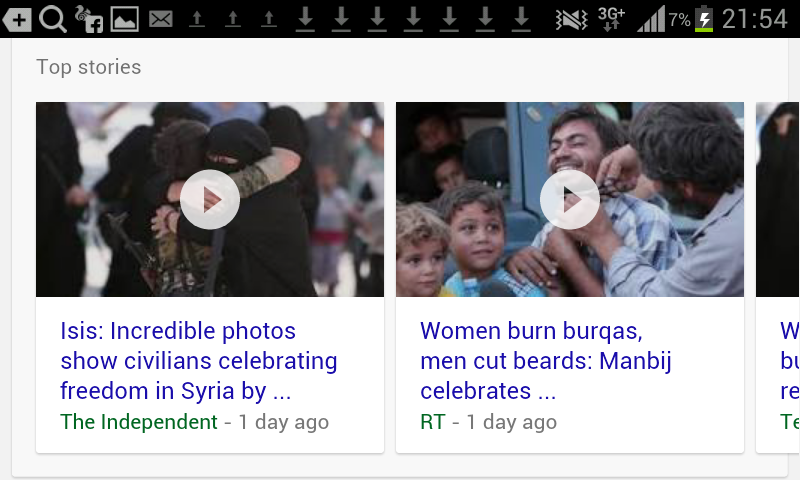
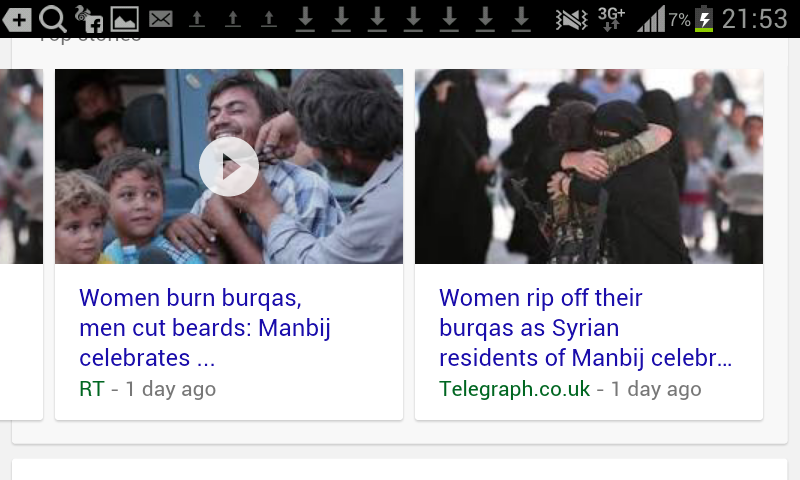
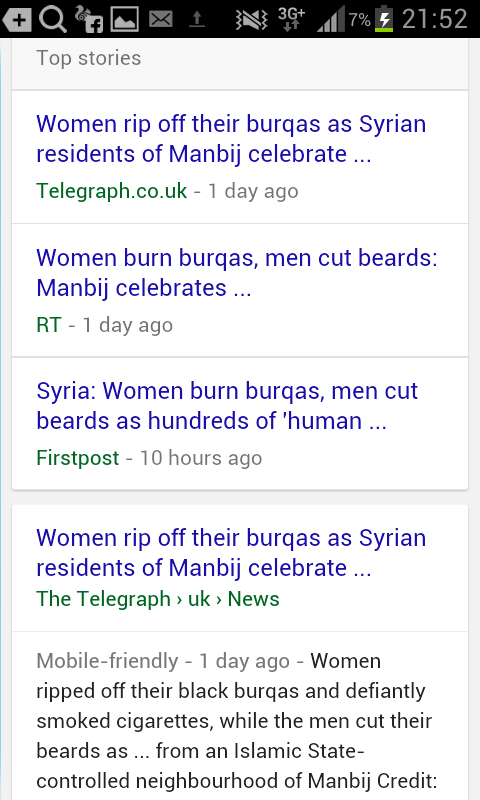
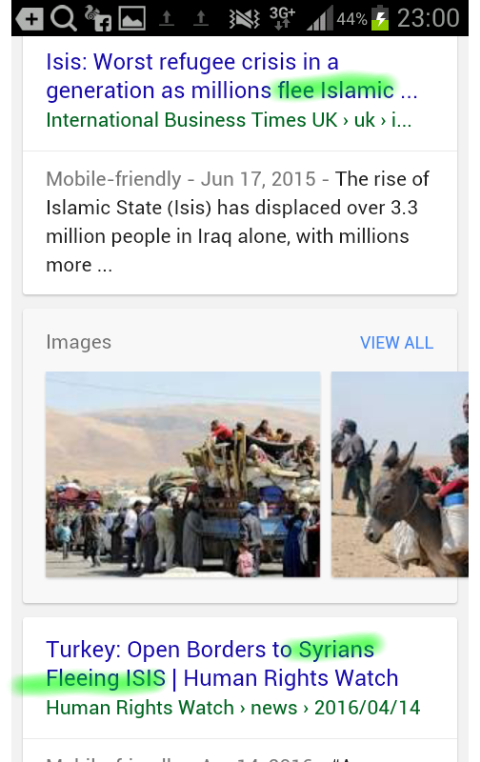
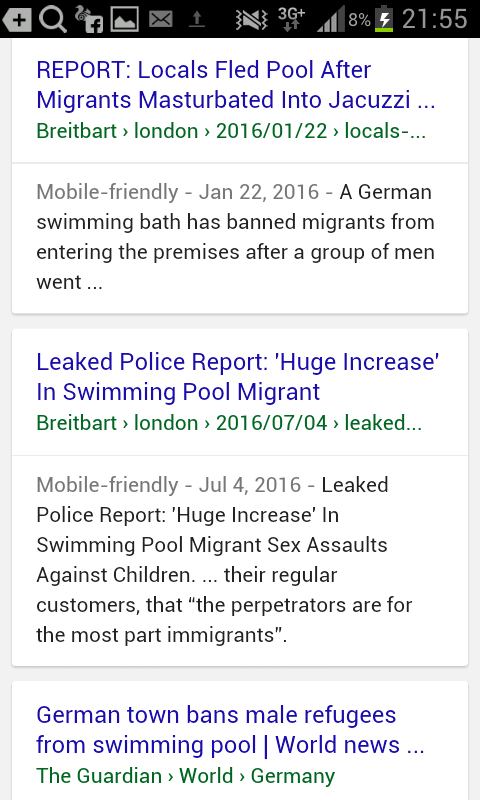
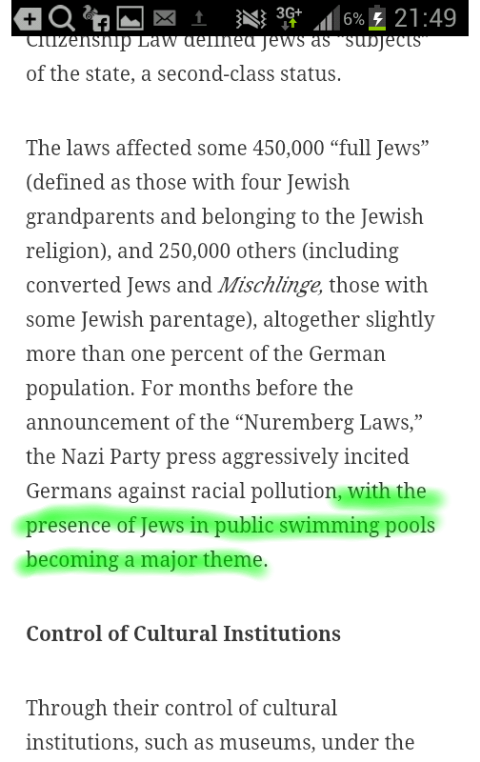
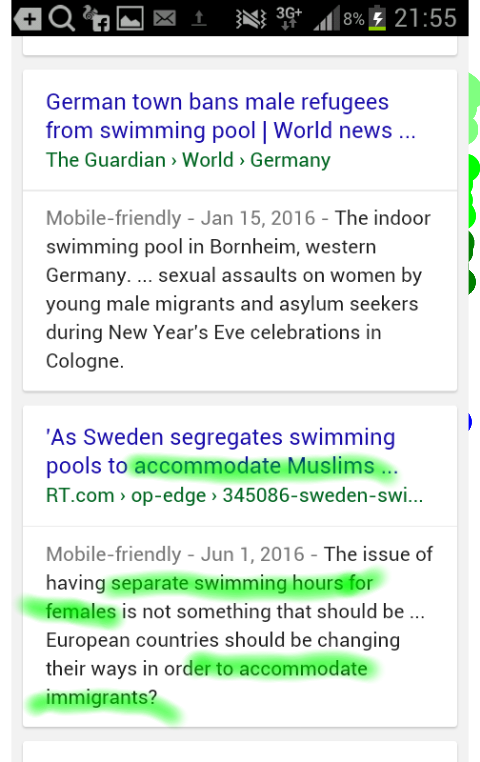


 forgive me for any wrong I might have said. Ameen.
forgive me for any wrong I might have said. Ameen.